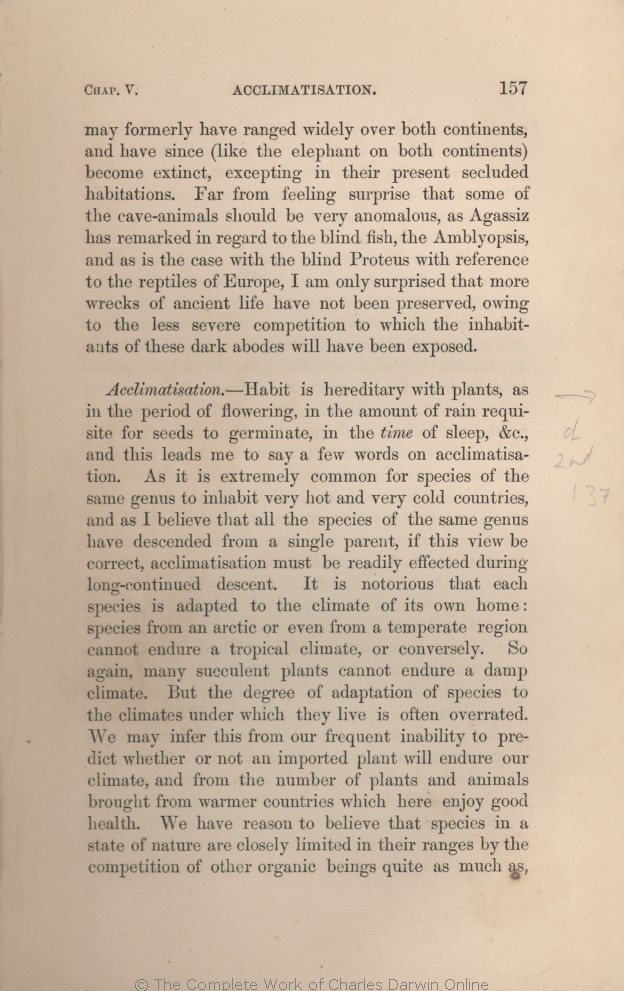may formerly | may formerly 1861 |
| whilst furnished with eyes, formerly may 1866 1869 |
| whilst they were furnished with eyes, may formerly 1872 |
| widely 1861 1866 1869 | widely 1872 |
| have since (like the elephant on both continents) 1861 |
| since (like the elephant on both continents) have 1866 |
| then have 1869 1872 |
| habitations. 1861 | | abodes. 1866 1869 1872 |
| ..... 1861 1866 1869 1872 | | any 1859 1860 |
| inhabitants 1859 1860 1861 1866 1869 | | scanty inhabitants 1872 |
| will 1861 1872 | | will probably 1859 1860 | | must 1866 1869 |
|
Acclimatisation
.—
|
Acclimatisation
.—
1859 1860 1861 | |
Acclimatisation
. 1866 1872 | |
Acclimatisation
. 1869 |
|
Habit is hereditary with plants, as in the period of flowering, in the
amount | amount 1859 1860 1861 1866 1869 | | time 1872 |
| rain requisite for seeds to germinate, 1859 1860 1861 1866 1869 |
| sleep, 1872 |
|
time
1861 1866 1869 | | time 1859 1860 | | amount 1872 |
| sleep, 1859 1860 1861 1866 1869 |
| rain requisite for seeds to germinate, 1872 |
| species of 1859 1860 1861 1866 1869 |
| distinct species belonging to 1872 |
| very 1859 1860 1861 | very 1866 1869 1872 |
| very 1859 1860 1861 | very 1866 1869 1872 |
| and as I believe 1859 1860 1861 1866 |
| if it be true 1869 1872 |
| have 1859 1860 1861 1866 | | are 1869 1872 |
| parent, if this view be correct, 1859 1860 1861 1866 |
| parent-form, 1869 1872 |
| long-continued 1859 1860 1861 1866 |
| a long course of 1869 1872 |
| warmer 1859 1860 1861 1866 | | different 1869 1872 |
| here enjoy good 1859 1860 1861 1866 |
| are here perfectly 1869 1872 |
| health. 1859 1860 1861 1866 | | healthy. 1869 1872 |
| closely limited 1861 1866 1869 1872 | | limited 1859 1860 |
|









